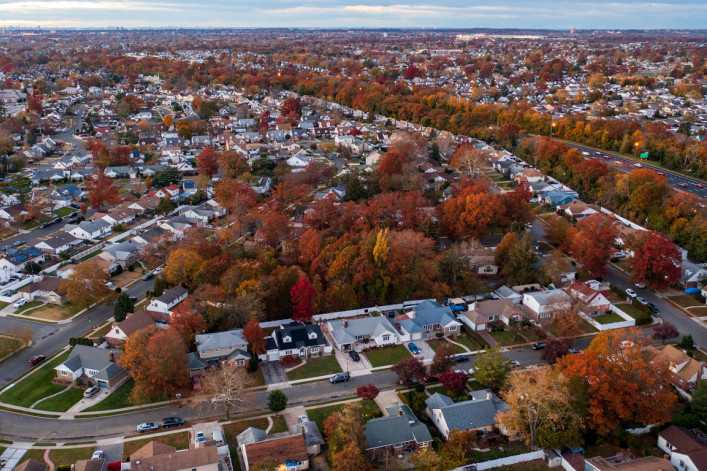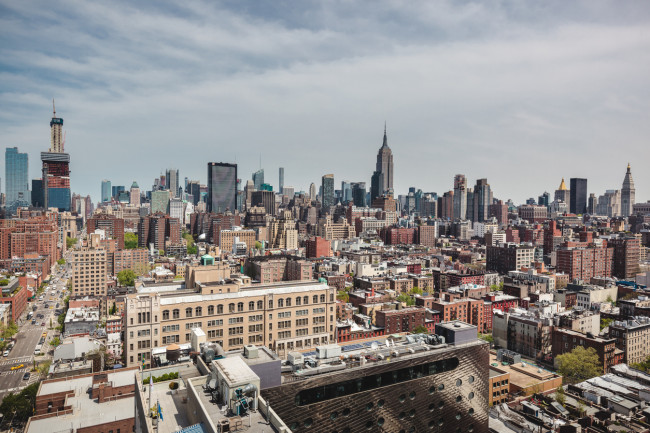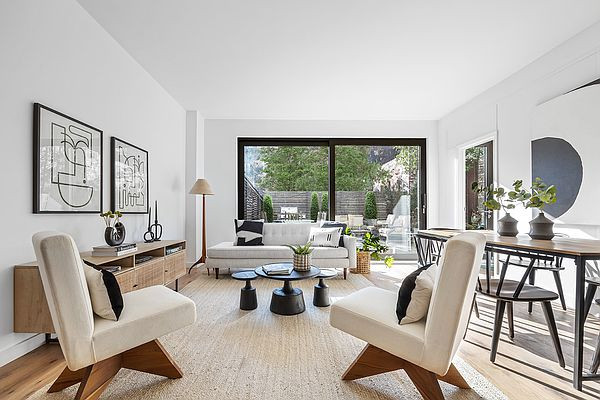Adding apartments in NYC's suburbs: New state-wide housing bill could shake up zoning rules

Low- and middle-income New Yorkers would benefit, but increasing the density of the suburbs won’t be done without a fight.
iStock
In a major shake-up for suburban housing, New York lawmakers are taking aim at single-family zoning in the state, with a plan to allow multi-family buildings on residential lots. A new bill would allow buildings ranging from duplexes to six-unit multi-families on residential lots that developers would typically build a single-family home.
Low- and middle-income New Yorkers would benefit from these changes but increasing the density of the suburbs won’t be done without a fight. Pushback is expected from those who don’t want the character of their neighborhood change, the buildings around them get taller, or on-street parking to become scarce.
That's because in theory, a lot which currently has a single-family home built on it could be bought by a developer and turned into a four- or six-apartment multi-family building, depending on its location, with no off-street parking.
Ending current minimum lot sizes
If passed in its current form, the bill would prevent New York cities and villages from establishing a minimum lot size larger than 1,200 square feet. It would also get rid of requirements for off-street parking and allow duplexes or up to four-unit buildings on most residential building lots and six-unit buildings within a quarter mile of a train station.
Towns would also be prohibited from setting a minimum lot size of greater than 5,000 square feet if a lot has access to sewer and water infrastructure or 20,000 square feet in any other area.
Increasing affordable housing in the suburbs
There’s been both resistance and pressure on lawmakers for years to address housing affordability and increase density in popular suburban areas. This bill is the opening salvo in that fight.
In his justification for the bill, Senator Brad Hoylman, who is sponsoring the legislation, says the housing shortage impacts everyone in New York by pushing rents higher, intensifying segregation, slowing the economy, and increasing carbon emissions.
“This bill will provide uniform standards that will allow the construction of affordable housing, including ‘missing middle’ housing, and encourage transit oriented development, which is crucial to combating climate change," Hoylman says.
Citing a recent study by the Furman Center, Hoylman points out in the bill that New York has been identified as having the most exclusionary zoning measures in the U.S.. He adds, that the "affordability crisis is best addressed statewide."
Zoning in most states, including New York, is handled by its myriad municipalities. This bill would adopt an approach being taken in California, one of a few states where statewide standards have been established for building multi-family housing.
You Might Also Like



























